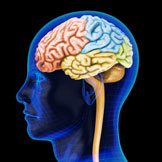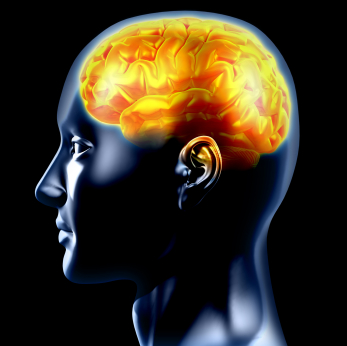|
|
If you're suffering from "mystery symptoms" like low energy, brain fog,
moodiness, difficulty sleeping or just a vague feeling of malaise —
chances are you're suffering from a vitamin deficiency that
affects 1 in 2 older adults.[1,2]
Yet tragically, doctors rarely detect this deficiency until it manifests
as a difficult to treat cognitive issues, cardiovascular problems, low
energy issues, mood and stress disorders...or worse.[3]
What's more, doctors typically misdiagnose the symptoms of this
deficiency and then prescribe drugs that do nothing to address
the problem, but instead have plenty of side effects that only make you
feel worse! This is especially tragic since many people, especially
senior citizens, are trying their hardest to take FEWER pharmaceutical
drugs...not more!
What I'm talking about here is vitamin B12 deficiency,
and if you've experienced any of the symptoms I described above, it's
imperative that you take action NOW to get your B12 levels up to a
healthy level — before irreversible damage occurs. The good news is that
B12 deficiency can be remedied easily, quickly and inexpensively. But
don't run out and grab the first bottle of B12 you see — it's crucial
that you take the right kind of B12, otherwise you'll be wasting
time, money and an incredible opportunity to revitalize your health.
CONSUMER ALERT: There's a shocking secret about what
most vitamin B12 supplements are made from and you most certainly
deserve to know about it. Please keep reading to learn how to
safely increase your B12 levels and revitalize your health with the form
of vitamin B12 that will do your body the most good.
My name is Joshua Corn and I am the Editor-in-Chief of Live in the
Now, one of the fastest growing natural health publications in the
nation. My passion for natural healing drives me to spread the word
about simple, safe and effective health solutions that can dramatically
improve your life.
Are YOU Vitamin B12 Deficient?
![]() The older you are, the higher your risk is for a B12 deficiency, but
younger people aren't exempt from harm. In a shocking recent Tufts
University study, researchers found that nearly 1 in 4 people over age
26 are at least borderline deficient in B12 and may already be
experiencing symptoms as a result.[4]
And sadly, if you're over 50, your odds of suffering from a B12
deficiency are no better than a flip of the coin.[1,2]
The older you are, the higher your risk is for a B12 deficiency, but
younger people aren't exempt from harm. In a shocking recent Tufts
University study, researchers found that nearly 1 in 4 people over age
26 are at least borderline deficient in B12 and may already be
experiencing symptoms as a result.[4]
And sadly, if you're over 50, your odds of suffering from a B12
deficiency are no better than a flip of the coin.[1,2]
|
SIGNS YOU HAVE A B12 DEFICIENCY |
||||||
|
|
|
Low energy and weakness |
|
|
Memory problems |
|
|
|
|
Confusion or "fuzziness" |
|
|
Irritability and mood swings |
|
|
|
|
Persistent sleep problems |
|
|
Dizziness or lightheadedness |
|
|
|
|
Digestive problems |
|
|
Weak immunity |
|
|
|
|
Hearing and vision loss |
|
|
Tingling in the extremities |
|
Why Your Body Needs B12
Your body depends on vitamin B12 for energy production. It's crucial to
the metabolic process that converts carbohydrates and fats into energy —
this is why it's often called the "energy vitamin."[5]
B12 is also one of the building blocks your body uses to produce DNA, so
it's crucial for healthy cell growth and repair — which is key to aging
the right way, not the WRONG way.
Additionally, vitamin B12 keeps your immune system functioning
optimally,[6]
regulates mood and sleep cycles,[7]
and mitigates the harmful effects of the toxic stress marker
homocysteine,[8,9]
making it a vital player in maintaining heart health and more. But new
research is showing that B12's most vital function of all may be
protecting your brain and entire nervous system by keeping your nerves
communicating in an optimal manner.[10,11]
This is especially important since cognitive decline, especially among
seniors, is reaching epidemic proportions.
ABOUT JOSHUA CORN, EDITOR-IN-CHIEF |
|
|
How B12 Protects Your Brain
 I
think it's safe to say that many of us expect to live well into our 80s
or beyond. But did you know that if you live to be 80, your chances of
suffering from severe loss of cognitive function are 1 in 2?[12]
Not coincidentally, roughly the same number of older adults is deficient
in B12! The good news is that getting enough B12 can drastically cut
your risk!
I
think it's safe to say that many of us expect to live well into our 80s
or beyond. But did you know that if you live to be 80, your chances of
suffering from severe loss of cognitive function are 1 in 2?[12]
Not coincidentally, roughly the same number of older adults is deficient
in B12! The good news is that getting enough B12 can drastically cut
your risk!
Emerging research is showing that age-related cognitive decline and
memory loss are linked to a process in the body that involves a decrease
in brain mass.[13]
That's right, your brain actually shrinks as you age!
A recent landmark study showed that vitamin B12 supplementation slows
the accelerated rate of brain shrinkage and declining cognitive function
in older individuals.[14]
Another study showed that older people with higher levels of B12 in
their blood had bigger, healthier brains and scored higher on
cognitive tests than those with lower levels.[15]
This research, in my opinion, is simply amazing and cannot be ignored.
Take B12 to SUPERCHARGE Your Days
As I mentioned, vitamin B12 helps your body
produce energy by metabolizing carbs and fats in the food you eat. The
effects of replenishing your B12 stores on your energy levels can be
dramatic. Most people report significant increases in energy,
stamina, motivation and ability to focus within days of
beginning to take a B12 supplement.
B12 is also needed for the production of the important neurotransmitter
serotonin, which regulates mood, sleep and appetite. A study from the
National Institute of Aging found women with low B12 levels were more
than twice as likely to develop depression as women with normal B12
status. Many people find that taking B12 helps them to get the
deep, rejuvenating sleep they need at night, so they wake up
feeling refreshed. This not only has a positive impact on your energy
levels throughout the day, but also affects your mood and outlook.
How B12 Saves Your Heart, Bones, Vision and Hearing
Another major benefit of having enough vitamin B12 in your body is
reduced levels of the toxic stress marker homocysteine.[16,17]
Not only does lowering homocysteine levels make you feel less stressed,
studies have shown that it also confers significant protection
for your heart, bones, vision and hearing. Homocysteine is
known to damage the inside of blood vessels and arteries, making
elevated homocysteine levels a serious risk factor for heart disease.[18]
Another negative health impact of
homocysteine is that it weakens bones by interfering with collagen
cross-linking, the molecular "stitching" that makes bones strong and
flexible. In one study, people with low B12 levels had
lower-than-average bone mineral density.[19]
Other exciting studies show that B12 also helps to build stronger bones
by aiding osteoblasts, the cells that build bone.
Additionally, B12's homocysteine-lowering effects help it protect your
vision and hearing. Harvard researchers found at least a 34% decreased
risk of vision loss and improved retinal blood vessel function for women
aged 40 and older who supplemented with B12.[20]
And yet another study found that low blood levels of vitamin B12 were
linked to a higher risk of hearing loss in women in their 60s.[21]
Researchers have concluded that homocysteine may damage the delicate
cells that transmit sound waves in the inner ear.
Why Are So Many People B12 Deficient?
 The reason that the vast majority of people end up B12 deficient has
nothing to do with their B12 intake, but rather, their ability to absorb
B12 from food. As you get older, the lining of your stomach gradually
loses its ability to produce hydrochloric acid, which you need to absorb
B12 from food. The use of certain drugs can also lower your stomach acid
secretion, further hampering B12 absorption.[22]
Since roughly 65% of Americans take pharmaceutical drugs on a daily
basis, you can see why so many people are B12 deficient.[23]
The reason that the vast majority of people end up B12 deficient has
nothing to do with their B12 intake, but rather, their ability to absorb
B12 from food. As you get older, the lining of your stomach gradually
loses its ability to produce hydrochloric acid, which you need to absorb
B12 from food. The use of certain drugs can also lower your stomach acid
secretion, further hampering B12 absorption.[22]
Since roughly 65% of Americans take pharmaceutical drugs on a daily
basis, you can see why so many people are B12 deficient.[23]
|
B12 Deficiency Can Strike Anyone, But You Are at Higher Risk if You |
|||||
|
|
|
Are over the age of 45 |
|
|
Take acid-blocking medications |
|
|
|
Are a vegan or vegetarian |
|
|
Are or have ever been anemic |
|
|
|
Suffer from digestive problems |
|
|
Have low stomach acid |
|
|
|
Take certain diabetes drugs |
|
|
Drink alcoholic beverages |
WARNING: Some B12 Supplements Contain
Cyanide
The form of B12 that you'll find in most
B12 products — even the B12 injections your doctor may administer — is
cyanocobalamin. And here's the shocker. Can you guess
how this form of B12 gets its name? Cyanocobalamin is comprised of a
cyanide molecule attached to a cobalamin (B12) molecule. Cyanide is a
toxic poison that the body cannot metabolize, and over time, it can
accumulate in brain tissues with disastrous results.[24]
For
reasons I'll never fully understand, way too many B12 supplements are
made with this virtually worthless form of B12. My guess is that these
companies are just out to save money at the expense of your health,
which is truly a shame. Don't jeopardize your health for the sake of
some company's profits!
What you want to take is a supplement made with the
methylcobalamin form of B12, which research has shown to be the
safest and most effective. Currently, most experts recommend taking a
minimum of 1,000 mcg a day of sublingual methylcobalamin.
Higher dosages of up to 15,000 mcg per day are sometimes required to
bring levels back up to an optimal level and to restore energy, mental
function and mood balance. Here's the amazing thing — B12 has no known
drug interactions and has absolutely no adverse or toxic effects, even
when given in very large doses. When it comes to B12, you just can't go
wrong, so long as you take the right form.
Joshua Corn
CEO of Stop Aging Now
Editor-in-Chief of Live in the Now
© Copyright 2014, Dick Morris and Eileen McGann

 Joshua Corn, Editor-in-Chief of the Live in the Now
newsletter, is a health freedom advocate who's been involved in
the natural health movement for over 15 years. He's always been
dedicated to promoting health, vitality, longevity and natural
living. Josh is currently writing a book on natural remedies and
is gearing up to launch the Live in the Now radio show. In
addition to his work in the natural health field, Josh is an
avid outdoorsman, organic gardener, animal lover and enjoys
"living in the now" with his wife and two sons.
Joshua Corn, Editor-in-Chief of the Live in the Now
newsletter, is a health freedom advocate who's been involved in
the natural health movement for over 15 years. He's always been
dedicated to promoting health, vitality, longevity and natural
living. Josh is currently writing a book on natural remedies and
is gearing up to launch the Live in the Now radio show. In
addition to his work in the natural health field, Josh is an
avid outdoorsman, organic gardener, animal lover and enjoys
"living in the now" with his wife and two sons.